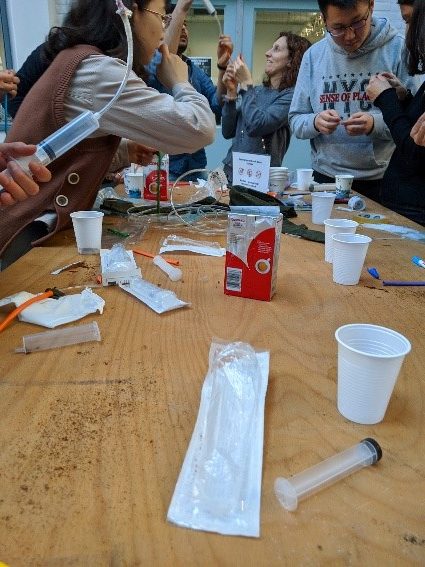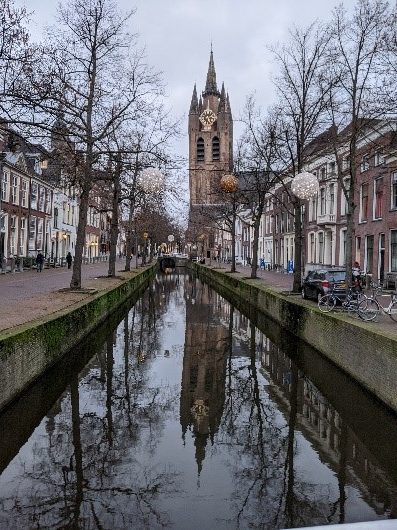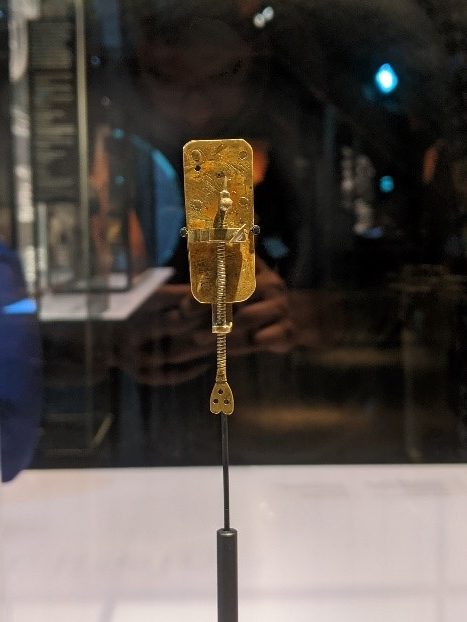NTA 2 -Sensing and Actuation for Soft Robotics
By Ameya Pore | 23rd-25th January 2020
Day1: Activities for the first day were planned by the Bio robotics institute, Sant ‘Anna School of Advanced Studies, Pisa. The morning session of the day was conducted by Dr Matteo Cianchetti, where he talked about Soft mechatronics, materials used for bending and theoretical background of soft materials. This session was followed by a tour of the workshop facility at TU Delft. The facility, named the Electronic and Mechanical development department (DEMO), is one of the largest fabrication facilities in the world. DEMO promotes experimental technical-scientific education and research by rapidly developing and manufacturing unique experimental setups and prototypes.

The evening session was a hands-on session based on the concept of Granular jamming. Jamming is a useful mechanism for producing media of variable stiffness, often seen in robotics applications for grasping complex and fragile objects. Different granular material such as sugar, coffee was used to fill air balloons and encapsulated using an air filter. The air inside the balloon was sucked out using a piston. After the vacuum was generated, the balloon held a rigid shape. Granular Jamming describes a mechanism by which granular media can reversibly transition between fluid and solid like states. When the granular material can flow freely, the object feels soft and pliable. Tenable stiffness is achieved by applying and releasing a vacuum on the bladder enclosing the grains – forming the grains to transition between states.

Following this session, Delft tour was organised in the old town. The tour entailed the cultural and historic significance of the city. This was followed by a social dinner.

Day2: Activities for day two were organised by KU Leuven, the day started by a talk by Dr Manu, where he talked about Artificial muscles and their bio robotic actuation. The next speaker was Shakiba Saeid, who talked about the genetic algorithm and their application in searching parameters for optimising Artificial muscles. Post Lunch, a visit was organised to the Royal Delft factory. During the tour, different aspects of creating a unique Porcelain material was showcased. Each product is hand-made and consists of several screening steps. This was followed by a hands-on session where ESRs were grouped into three teams: Each team performed a specific task such as creating an artificial muscle, programming a genetic algorithm. In the evening, the social dinner was organised.

Day3: Bio-Inspired Technology Group, TU Delft, organised the activities of day three. The day started with an exhuberant talk by Prof Paul Breedveld. During the talk, he provided analogies of mechanical instruments to biological systems. He showcased various catheters that his group has been working on and the innovation associated with them. Further, he conducted a session on creative designing, where he talked about the approach one must follow to explore and reach a disruptive idea. Towards the end, he presented his unique collection of vintage objects such as mechanical calculator and codebreaker from WWII.
In the second half of the day, a tour was organised to a Science Museum at Leiden. The Museum had several antiques and historical preservations such as the first microscope and changes in the surgical procedures from ancient to modern times. The day ended with a Social dinner.
To conclude, the workshop provided an overview of general techniques in Soft robotics and their application in surgical procedures.

